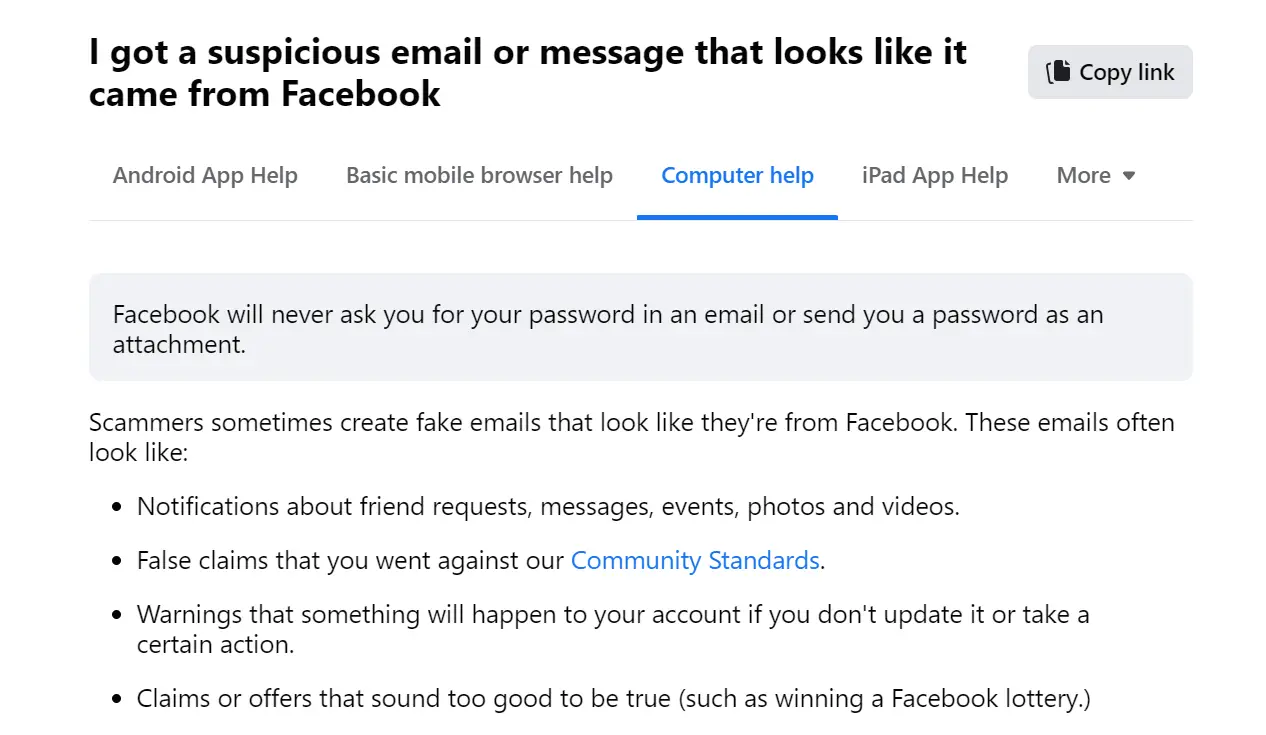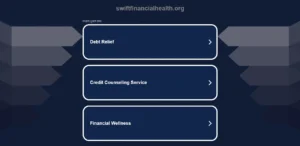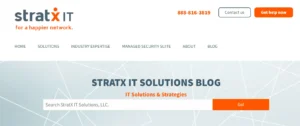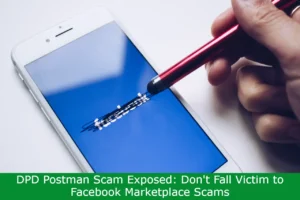Are you familiar with the Community Standards Facebook scam?
It’s important to be aware of this phishing email scam and know how to protect yourself against it.
In this article, we will explain how the scam works, identify warning signs and red flags to look out for, and provide steps to safeguard yourself.
Don’t fall victim to this scam – stay informed and take action to keep your personal information secure.
Table of Contents
Overview of the Community Standards Facebook Scam
You should be aware of the Community Standards Facebook scam, as it is currently targeting unsuspecting users through phishing emails.
This scam is designed to trick you into believing that your Facebook account has violated community standards and that urgent action is required. The scammers send you an email that appears to be from Facebook, complete with the company’s logo and branding.
The email will claim that your account has been reported for violating the community standards and that you must verify your account to avoid suspension. It will then provide a link for you to click on, which will take you to a fake website designed to steal your login credentials.
How the Phishing Email Scam Works
The way the scam works is by sending out fraudulent emails to trick users into disclosing personal information. You might receive an email that appears to be from Facebook, claiming that your account has violated their community standards.
The email may state that your account will be temporarily suspended unless you verify your information by clicking on a link provided.
However, this link is not legitimate and will lead you to a fake website designed to look like Facebook’s login page.
Once you enter your username and password, the scammers will have access to your account and personal information. They can then use this information for malicious purposes, such as identity theft or unauthorized access to your other accounts.
It is important to always be cautious of suspicious emails and never provide personal information through unverified sources.
Warning Signs and Red Flags to Look Out For
If you come across an email that appears suspicious or asks for personal information, it’s important to be aware of warning signs and red flags.
First, check the sender’s email address. If it looks unfamiliar or has strange characters, it may be a phishing attempt.
Second, pay attention to the language and tone of the email. Phishing emails often use urgent or threatening language to create panic and prompt you to take immediate action.
Third, look for grammatical errors or spelling mistakes. Legitimate companies usually have professional communication standards.
Fourth, be cautious if the email asks for sensitive information like your password or social security number. Legitimate organizations typically don’t request this information via email.
Lastly, hover over any links in the email without clicking on them to see the actual URL. If it looks suspicious or different from what is displayed in the email, it’s likely a scam.
Stay vigilant and remember, when in doubt, it’s better to err on the side of caution and not provide any personal information.
Steps to Protect Yourself From the Scam
To protect yourself from potential scams, it’s crucial to remain cautious and follow these steps.
First, always verify the source of any emails or messages claiming to be from Facebook’s community standards team. Be wary of emails that ask for personal information or request you to click on suspicious links.
Secondly, double-check the email address of the sender. Scammers often use fake email addresses that closely resemble legitimate ones.
Next, never provide sensitive information, such as your password or credit card details, through email or messaging platforms. Facebook will never ask for this information through these channels.
Lastly, report any suspicious activity to Facebook immediately. By staying vigilant and taking these precautions, you can safeguard yourself against falling victim to phishing scams.
Reporting the Scam to Facebook and Law Enforcement
When reporting the scam, make sure to provide as much detailed information as possible to help Facebook and law enforcement investigate the situation.
Start by describing the nature of the scam and how it targeted you.
Explain the specific actions or requests made by the scammer and any suspicious links or attachments they sent.
Include the email address, username, or profile name of the scammer involved, as well as any other identifying details you may have noticed.
If possible, take screenshots of the scam messages or any related activities.
Additionally, provide the date and time of the scam, as well as any other relevant information that could aid in the investigation.
Frequently Asked Questions
How Much Money Can I Expect to Lose if I Fall for the Community Standards Facebook Scam?
If you fall for the Community Standards Facebook scam, you can expect to lose a significant amount of money.
It’s important to be cautious and not to share any personal or financial information with scammers.
Can the Scammers Access My Personal Information if I Don’t Click on Any Links in the Phishing Email?
If you don’t click on any links in the phishing email, the scammers may not be able to access your personal information directly.
However, it’s still important to delete the email and be cautious of any suspicious activity.
Is There a Way to Track Down and Prosecute the Individuals Behind the Community Standards Facebook Scam?
To track down and prosecute the individuals behind the Community Standards Facebook scam, you should report the incident to the proper authorities and provide any evidence you have.
They will investigate and take appropriate action.
Are There Any Specific Demographics or Groups of People That Are More Likely to Be Targeted by This Phishing Email Scam?
You may be wondering if there are certain demographics or groups of people who are more likely to be targeted by this phishing email scam. Well, the answer is no, scammers do not discriminate. They are opportunistic and will target anyone they believe they can deceive and exploit.
Can Facebook Reimburse Me for Any Financial Losses I Incur as a Result of Falling for the Community Standards Facebook Scam?
Facebook cannot reimburse you for any financial losses incurred from falling for the community standards Facebook scam.
It’s important to be vigilant and avoid falling for phishing emails to protect yourself.
Conclusion
In conclusion, it’s vital to stay vigilant and informed about scams like the Community Standards Facebook scam.
By being aware of the warning signs and red flags, you can protect yourself and your personal information from falling into the hands of scammers.
Remember to report any suspicious emails or messages to Facebook and law enforcement to help prevent others from becoming victims.
Stay safe online and remember, if something seems too good to be true, it probably is.
Also Read
Homeworkify Not Working – Shocking Truth About Homeworkify!
Crumbl App Not Working: Why It’s Crashing & Quick Fixes
Me Bank App Not Working? Discover the Quick Fix
Also Read
Bupa App Not Working: Find Solutions to Get it Working
CIBC Interac E Transfer Not Working: Common Hiccups and Quick Fixes
Stevie Ray Vinyl Scam Exposed – Don’t be Fooled by Fake Ads
Also Read
Echo Refund Scam Exposed – Avoid Falling Victim
Spark Tide Refund Scam Exposed: Don’t Fall for Sparktide.Co.Uk
Trend Refund Scam Exposed – Don’t Fall Victim to Imposters
Also Read
Swiftvibe Scam Unmasked: Don’t Fall Victim to Their Tricks
Echo Pulse Scam – Unmasking Echopulse.Co.Uk
Flux Flick Refunds Scam – Fluxflick.Co.Uk Exposed
Also Read
















































